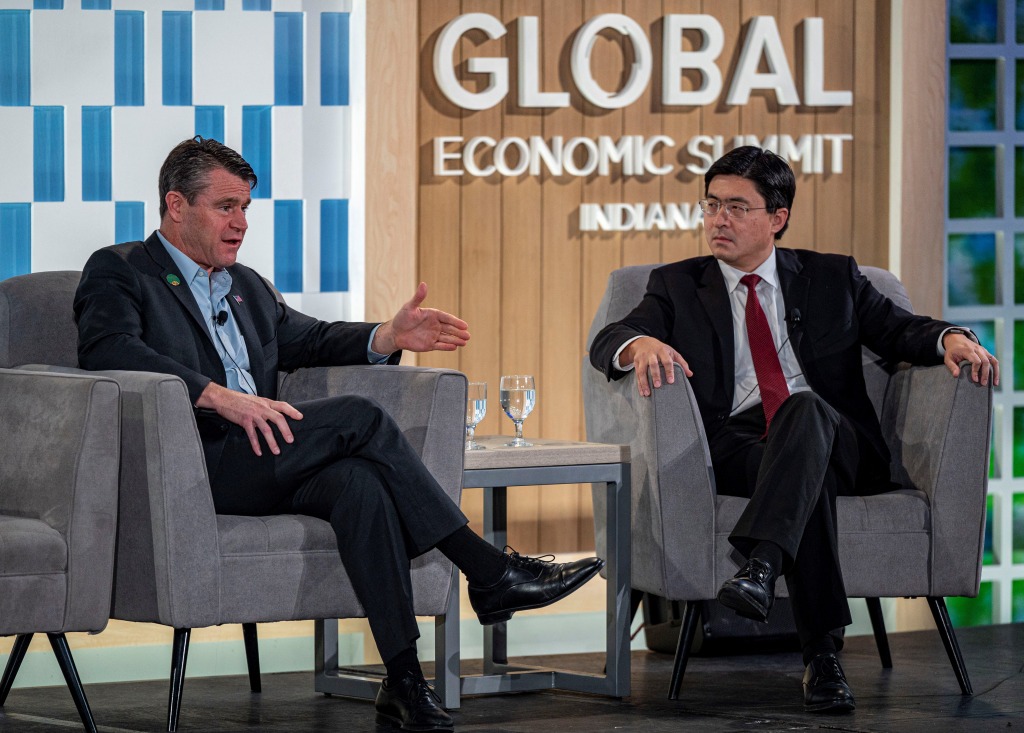Subscriber Benefit
As a subscriber you can listen to articles at work, in the car, or while you work out. Subscribe NowA group of Indiana leaders is pooling its resources in pursuit of landing one of 20 regional tech hubs that will focus on technology development, job creation and expanding innovation.
Heartland Bioworks, a consortium of Hoosier stakeholders in the fields of advanced manufacturing and biotechnology, has submitted an application to the United States Economic Development Administration for official designation as a Regional Technology and Innovation Hub.
The Creating Helpful Incentives to Produce Semiconductors and Science Act, a $280 billion piece of federal legislation passed last year, created the Regional Tech Hubs Program, authorizing the U.S. Department of Commerce to allocate $10 billion in funding over five years for the creation of 20 tech hubs across the country. Three of those centers are slated to be located in the Midwest.
If designated as a tech hub, Indiana would compete for an implementation grant of up to $75 million.
“Indiana has an established legacy of leading economic opportunities through a secure U.S. biotech supply chain, which is critical to national security,” David Rosenberg, Indiana’s newly appointed secretary of commerce, said in written remarks. “The Heartland BioWorks Hub has created an opportunity to deepen collaboration between Hoosier biomanufacturing stakeholders, enabling them to continue innovating and thriving in the U.S.”
More than 130 Hoosier tech companies reported $441 million in capital investment last year, the second highest number since Indianapolis-based TechPoint began publicly tracking those numbers, and several tech companies have already landed big funding rounds in 2023.
The Applied Research Institute, a Bloomington-based not-for-profit that works with universities, industry and the government on technology and innovation issues, convened leaders from private, public, academia and not-for-profit sectors to submit an application.
“Heartland BioWorks will secure U.S. leadership in making the biotech products of the future,” said Dave Roberts, CEO of ARI, in written remarks. “The hub will provide biotech start-ups with access to manufacturing, and implement the workforce training required to support new industry, focusing on historically economically disadvantaged communities.”
The 11 members of Indiana’s congressional delegation authored a letter in support of the application.
“Indiana has the ideal combination of life sciences expertise, manufacturing excellence, technological potential, and regional and cross-sector cooperation to be named a ‘biotechnology, medical technology, genomics, and synthetic biology’ Tech Hub,” the letter read.
Indiana’s three R1 doctoral universities—Indiana University Bloomington, Purdue University and the University of Notre Dame—also co-signed the application.
Indiana Republican U.S. Sen. Todd Young, who co-authored the CHIPS and Science Act with New York Democratic Sen. Chuck Schumer, has said tech hub recipients will receive education funding targeted toward cutting-edge technologies deemed essential to national security.
The EDA is expected to announce award and funding decisions in fall 2023. John Fernandez, a former leader at the Economic Development Administration and former mayor of Bloomington, will serve as the consortium’s regional innovation officer.
Please enable JavaScript to view this content.


Government should not be financing winners and losers.
The cities picked will be picked by politics.
Cities that are not picked that have put a great deal of effort and money into
developing their economies will be screwed.
Again, how much will politics play in federal government’s role I. picking these
cities to become tech hubs???
I agree 💯
“The Creating Helpful Incentives to Produce Semiconductors and Science Act, a $280 billion piece of federal legislation passed last year, created the Regional Tech Hubs Program, authorizing the U.S. Department of Commerce to allocate $10 billion in funding over five years for the creation of 20 tech hubs across the country.”
80 billion disappeared into thin air! Typical transfer of wealth.